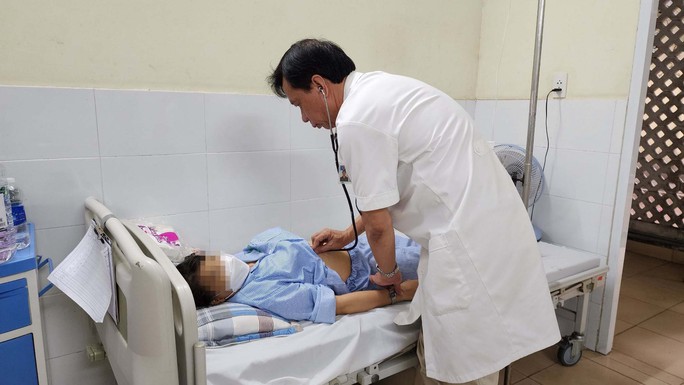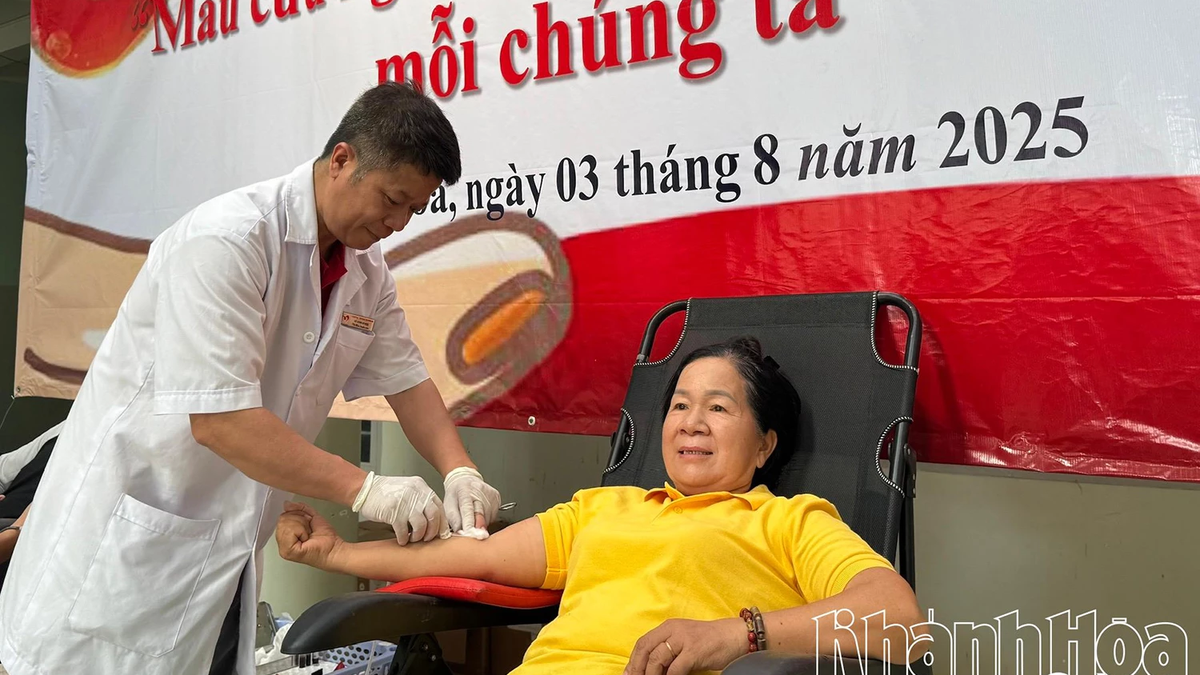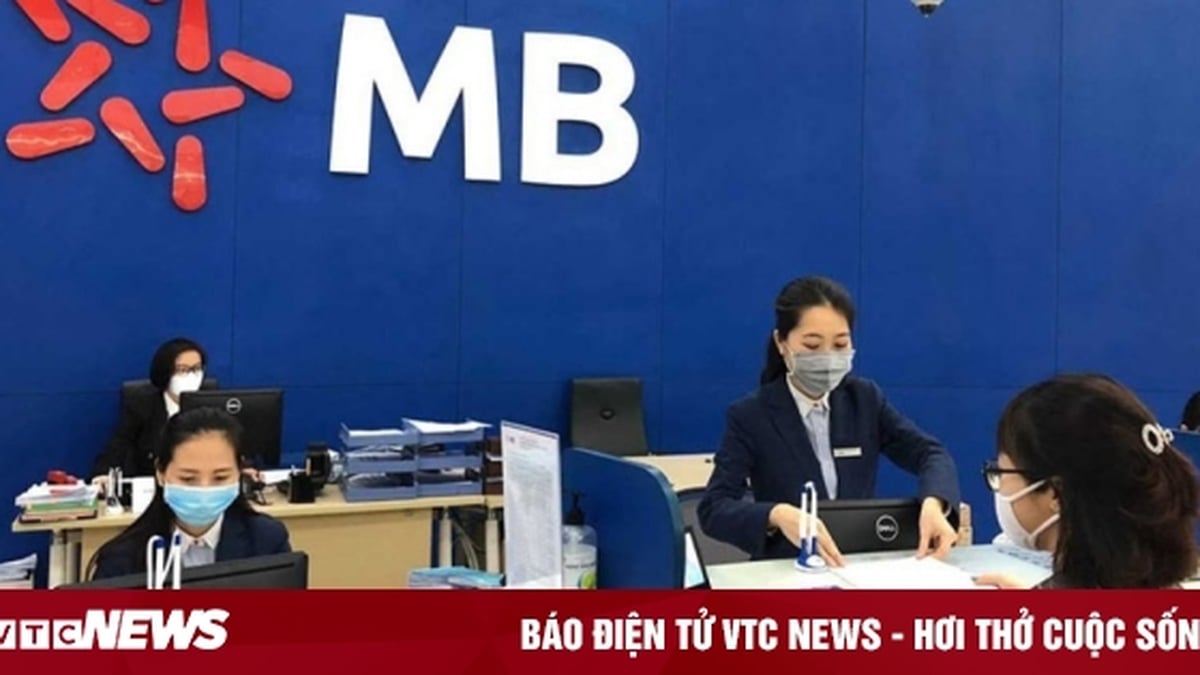Poisoning from painkillers, fever reducers, etc. is very common in hospitals. The reason is that the drugs are non-prescription drugs, so people can easily buy and use them. Hospitalization cases are mainly due to two groups of causes: overdose and suicide and drug abuse leading to poisoning. There are even critical cases due to incorrect use of drugs.
Almost died from drug abuse
Recently, Children's Hospital 2 (HCMC) received treatment for a boy named NMT (8 years old, living in Tay Ninh ) with blood clotting disorder, liver failure... due to an overdose of paracetamol. Doctor CK2 Do Chau Viet, Head of the Department of Infectious Diseases - COVID-19, Children's Hospital 2, said that the patient was transferred to the emergency room by the provincial hospital in a state of drowsiness, blood clotting disorder, liver failure, high liver enzymes 9,500 IU/L (normal 30-400 IU/L). Taking the medical history, the family said that before being admitted to the hospital, T. had a fever, so his grandmother bought medicine for him to take but was not instructed on how to use it. Seeing that the child still had a fever, every hour the grandmother mixed more paracetamol, using alternately in tablet, packet and rectal form. After about 2 days, the patient fell into critical condition due to coma, respiratory failure... Fortunately, the child was given timely emergency care and after a week of treatment, the child recovered.

Doctor CK2 Bui Vinh Quang, Head of Department A25, Military Hospital 175 (HCMC) examines a patient.
Similarly, also due to the abuse of painkillers, female patient NVTT (18 years old) suffered from severe multiple organ failure and had to be treated in the intensive care unit of Military Hospital 175 (HCMC). Doctor CK2 Bui Vinh Quang, Head of Department A25, Military Hospital 175 - who treated Ms. T., said that the patient often had headaches due to study pressure, so she often bought painkillers to take herself. However, due to long-term use, complications and poisoning led to liver failure and multiple organ failure. The patient was actively treated, using detoxifying drugs and having plasma replaced 5-6 times. Currently, the patient has overcome the critical stage and is recovering.
According to Dr. Quang, on average, each year, Military Hospital 175 receives 400-500 patients poisoned by Western medicine and 150-200 cases of poisoning by paracetamol painkiller. Patients are usually hospitalized in 2 cases of suicide by overdose and abuse, frequent use of drugs. Drug poisoning is divided into 3 stages: the first 24 hours are usually asymptomatic; stage 1-3 days later, the patient will have symptoms such as vomiting and begin to damage multiple organs; from the 4th day, if the patient overcomes it, he or she can gradually recover.
Find the cause of fever
The danger is that the initial signs are very faint, only when hospitalized are the lesions detected through tests. Many cases are hospitalized late, making treatment difficult. If detected in time, the patient can come early within the first 6 hours, then specific antidotes or IV fluids can be administered to detoxify - Dr. Quang emphasized and noted that overdose when used over 140 mg/kg body weight/day will cause poisoning. However, in some cases, even if taken at a lower dose, poisoning can still occur, such as people who regularly drink alcohol or beer; patients with liver and kidney diseases (liver failure, kidney failure...) or patients using anti-tuberculosis drugs.
Dr. Quang recommends that in order to use painkillers appropriately, effectively and safely, patients should not use painkillers on their own but must consult a doctor or pharmacist. At the same time, patients need to provide full information to doctors and pharmacists about symptoms, pain level, history of medication use, etc. to help choose the right painkiller, avoiding possible complications.
Dr. Nguyen Minh Tien, Deputy Director of the City Children's Hospital (HCMC), said that children with fevers are usually infected with viruses or bacteria. When pathogens invade, the body will respond by increasing body temperature to promote protective reactions to eliminate pathogens. Thus, fever is not a disease, but a good sign that the child's body is actively fighting pathogens. Therefore, it is important to find the cause of the fever, not to reduce the fever by all means.
If your child has a fever, remove some blankets and clothes, and only dress your child in a thin layer of cotton clothing to allow the body to release heat and reduce the fever. When your child has a low fever, let him or her rest, dress your child in cool, sweat-absorbent clothes, give your child plenty of fluids (milk, water, fruit juice, soup, etc.) and feed him or her easily digestible foods. If the fever is too high (over 39 degrees Celsius), your child will easily become dehydrated and will often feel very tired, so you should give your child fever-reducing medicine.
A safe fever reducer is acetaminophen (paracetamol), brand names are hapacol, efferalgan... The usual dose is 10-15 mg/kg of the child's weight per dose and 2 doses should be at least 6 hours apart. In addition, you can also refer to the dosage printed on the medicine box.
If your child is under 2 years old, it is best to use fever-reducing medication according to the doctor's instructions. Avoid overusing or overdose when your child has a high fever - using more fever-reducing medication than the recommended dose only increases the risk of overdose and drug poisoning.
Use with caution
Doctor Bui Vinh Quang reminded patients to follow the instructions for using the medicine, such as: do not chew, break or crush the pills on your own; do not change the dosage, buy more medicine or stop taking the medicine suddenly.
Doctor Nguyen Minh Tien emphasized: Do not scrape wind, cut, wrap the child tightly or abstain from eating and drinking when the child is sick. In addition, do not wipe with ice, vinegar, alcohol or lemon when the child has a fever because it can cause poisoning.
In addition, in each dose of fever-reducing medicine, only use one of the two routes, oral or rectal, do not use both routes at the same time. In addition, the drug ibuprofen (brand names ibrafen, nurofen, advil...) available on the market can also help reduce fever. However, it should be used with caution as directed by a doctor and should not be used for children under 6 months of age. In particular, ibuprofen should not be used in dengue fever because it can worsen existing blood clotting disorders, easily causing gastrointestinal bleeding.
Source




































































































Comment (0)